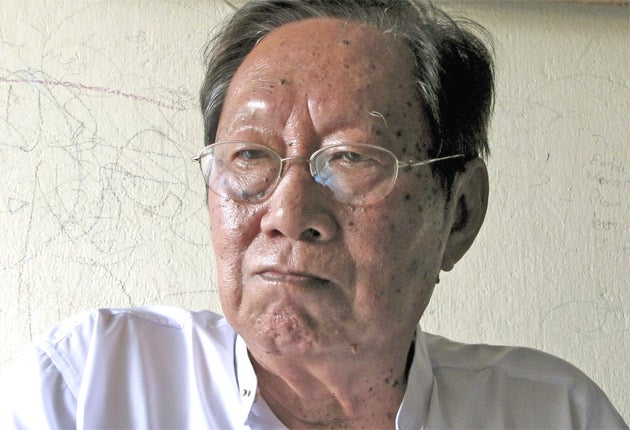Suu Kyi 'will not accept conditions on release'

Detained democracy leader Aung San Suu Kyi will not accept any conditions Burma's military junta may try to attach to her release from house arrest, her lawyer has insisted.
Nyan Win, who is also a spokesman for Ms Suu Kyi’s National League for Democracy (NLD), said that on previous occasions when she had been set free, the authorities had tried to impose various conditions on her. She had always rejected them.
The Nobel Laureate has spent more than 15 of the last 21 years either in jail or detained in her Rangoon home. Her current term of detention is due to expire on Saturday. While the authorities have given no indication of whether she will released, her supporters say they remain hopeful.
“There is no law they can use to restrict her freedom [once released],” said Nyan Win. “They will discuss with her things like security. If there are any conditions then it’s not within the law and ‘The Lady’ will not accept them.”
Asked whether Ms Suu Kyi would opt to remain under house arrest if conditions were attached, the lawyer said: “She will not accept any conditions. According to the law she would be free.”
Speculation over the possible release of the democracy leader, who was last detained in May 2003, comes as opposition parties accused polling officials and members of the pro-military party, which won Sunday’s election, of vote-rigging. They say it cost them scores of parliamentary seats.
“This election was an ugly event,” said Cho Cho Kyaw Nyein, a candidate for the opposition Democratic Party, who failed to win her seat. “I know for a fact that the whole town voted for me. There was vote-stealing on an extreme scale.”
Ms Kyaw Nyein, one of the so-called “three princesses”, all daughters of post-independence leaders who ran for the Democratic Party, lost to a candidate of the junta’s proxy, the Union Solidarity and Development Party (USDP).
Opposition parties were always going to lose Sunday’s vote, the first in Burma for 20 years. Hampered by bureaucratic restrictions and lack of funds, they only managed to put up candidates in just over 200 of 1,159 constituencies, while the amply-funded and state-backed USDP contested nearly all of the seats.
Official results have yet to be released, but a USDP official said the party had won nearly 80 percent of seats, with most of the remainder going to another pro-military party.
While defeat was inevitable, it is the manner in which they lost that has further angered the opposition, and quashed optimists’ expectations that this, albeit imperfect, election could be a first step towards democracy and more vigorous political debate in Burma, which has been under military dictatorship for nearly half a century.
The conduct of the poll also appears to vindicate the stance of Ms Suu Kyi, who called for a boycott.
Complaints centre around “advance voting” in which civil servants were forced to vote for the USDP in early balloting, often held in government offices, which overturned many of the victories the opposition believed it had secured on election day. Opposition candidates also accused polling officials of simple ballot stuffing with false votes.
Ms Kyaw Nyein said she had just arrived in Naypyidaw, the isolated jungle capital that the generals built five years ago, to make a complaint to senior general Than Shwe about the vote in her constituency. The largest anti-government party, the National Democratic Force (NDF), which won just 16 seats, said it was considering its next move.
“It was not honest, not fair, not according to the will of the people,” said Dr Sein Hla Oo, an NDF leader. “Everything was crooked, and we are now discussing with our members about how we should respond.”
Despite the anger of the opposition parties, there are likely to be few formal complaints. The authorities have reportedly set the price of filing such a grievance at 1m kyat ($1,000) for each submission.
That works out at around five times the GDP per capita.
The polling sparked fighting between ethnic rebels and government soldiers near Burma’s border with Thailand, and fears of an escalation of insurgencies among Burma’s ethnic minorities, who have been battling the government since the country won independence from Britain in 1948.
Subscribe to Independent Premium to bookmark this article
Want to bookmark your favourite articles and stories to read or reference later? Start your Independent Premium subscription today.

Join our commenting forum
Join thought-provoking conversations, follow other Independent readers and see their replies